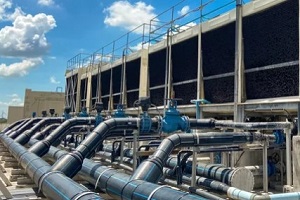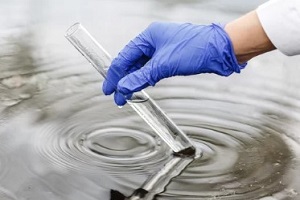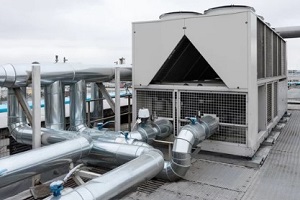 Chillers are vital components of many industrial processes and commercial buildings. They are responsible for cooling water or other fluids that are then used for air conditioning, refrigeration, or process cooling. However, the efficient operation of chillers can be hampered by a variety of factors, including poor water quality. Water treatment is crucial for chiller operation, as it helps prevent scaling, corrosion, and biological fouling in the chiller and its components.
Chillers are vital components of many industrial processes and commercial buildings. They are responsible for cooling water or other fluids that are then used for air conditioning, refrigeration, or process cooling. However, the efficient operation of chillers can be hampered by a variety of factors, including poor water quality. Water treatment is crucial for chiller operation, as it helps prevent scaling, corrosion, and biological fouling in the chiller and its components.
It is important to understand the types of water treatment necessary to protect your chiller, what types of water concerns might arise, what can lead to a failure, and also how to prepare it for the off-season.
Types Of Water Treatment Methods
There are different types of water treatment methods that can improve the water quality in a chiller system. Chemical treatment involves using chemicals to control the parameters of the water, and prevent corrosion and scaling.
Applying a corrosion inhibitor is critical as it extends the life of the system and prevents mechanical failure by slowing the breakdown of metals in your system. You will also need to chemically treat the system for biological growth.
This involves the use of an oxidizer to eliminate the growth of biofilm and bacteria, like legionella. If the system is not protected against the growth of biofilms, it will greatly reduce the efficiency of the system.
Many water treatment professionals may also include filtration, softening, and deionization, as a part of their process, which remove impurities and minerals from the water.
Water Quality Concerns
 Building engineers and managers should be aware of various water concerns that can impact the efficiency of their chiller system, including hard water, corrosive water, and microbiological fouling.
Building engineers and managers should be aware of various water concerns that can impact the efficiency of their chiller system, including hard water, corrosive water, and microbiological fouling.
Though obvious, clear water is a good sign that there are no contaminants in the water. If you notice that your chiller water sample is brown, or has a foul odor, this can be a concern.
When using a water treatment specialist, your monthly service should include results on hardness, pH, conductivity, and bacteria. When testing the water quality, they should look for signs of scaling caused by hard water, which can reduce heat transferability in the chiller.
Corrosive water can cause damage to the chiller’s metal components, which can be costly to repair. High pH or conductivity will reveal if there are any acids or a high concentration of suspended solids which can cause corrosion.
They should also be on the lookout for microbiological fouling, which can reduce chiller efficiency and cause system failures. A quick dipslide test will reveal if bacteria levels are too high.
It is important to understand as well that failure to address bacteria growth can also be a health risk. If you are still getting bacteria growth despite the use of oxidizers, corrective action will be necessary to kill off any organic growth.
Chiller Operation Failures
The purpose of monitoring corrosion levels, scale, and bacteria is to prevent future failure of your system. Over time, if your system is left untreated, or if the water quality is not corrected to be within certain parameters, your chiller will need to be replaced sooner than later.
Also, if contaminants are left to flow freely through the water within a system, they can build up on heat transfer surfaces. Over time, this impacts energy and water consumption, as the chiller has to work harder to achieve the same heat transfer.
The goal is to keep your chiller tubes free of debris and sludge buildup. Overworking or not protecting your equipment can also lead to issues with your compressor or pumps, difficulty maintaining temperature control, and even leaks.
Contact The Water Treatment Pros
To learn more about Tower Water's services reach out today!
Lay Up Of Chillers
 During off-seasons or periods of low demand, it’s important to lay up a chiller correctly. This involves preparing it for an extended period of inactivity to ensure efficient operation when it’s next required.
During off-seasons or periods of low demand, it’s important to lay up a chiller correctly. This involves preparing it for an extended period of inactivity to ensure efficient operation when it’s next required.
Draining the water and adding an inhibitor is crucial to prevent corrosion, while removing debris and contaminants is important to avoid blockages that can cause reduced efficiency and system damage. Ensuring the system is free of standing water is also necessary to prevent microbial growth and fouling.
Lay up is a precautionary maintenance step that should not be overlooked and completed at the end of the cooling season every year.
Trust Your Chiller Water Treatment Solutions To Tower Water
If you need assistance with water treatment, or developing a service program for your facility, be sure to work with the experts. At Tower Water, we believe in creating a personalized plan that is unique to your building’s risks and needs.
Contact Tower Water today at 212-518-6475 to learn more about how we can help improve your facility’s cooling operation.
